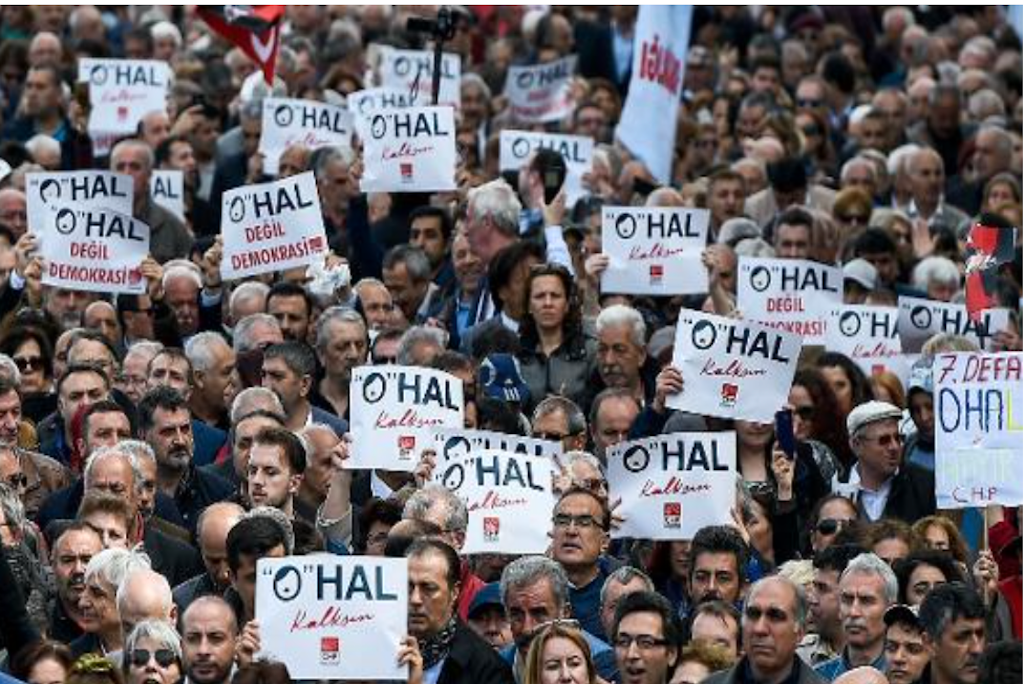The state of emergency imposed by Turkish government led by President Recep Tayyip Erdoğan in the wake of a controversial coup attempt on July 15, 2016 is expected to be lifted on July 18, President Erdoğan’s spokesperson İbrahim Kalın said on Friday.
“If we are faced with a very extraordinary threat, the state of emergency mechanism can be declared again,” Kalin also told reporters after Erdoğan’s first Cabinet meeting under the new presidential system.
Turkey declared a state of emergency for the first time on July 20, 2016 following the coup bid. The state of emergency was first imposed by the Turkish government after a controversial coup attempt on July 15, 2016 and was extended on Oct. 19, 2016, Jan.19, 2017, April 19, 2017, July 20, 2017, Oct. 17, 2017 and Jan. 18, 2018. In April, the Turkish government renewed the ongoing state of emergency for the seventh time.
According to the Turkish Constitution, a state of emergency can be declared for a maximum period of six months. During emergency rule, the Cabinet has the right to issue statutory decrees under the president of the republic without regard to routine procedures or restrictions in Article 91 of the constitution. These decrees are first published in the Official Gazette and then submitted to Parliament for ratification.
The Constitution requires that in order to enact emergency rule, the government must see serious indications of widespread violence that could interfere with Turkey’s democratic environment or its citizens’ basic rights and freedoms as established by the constitution.
The AKP has issued a number of government decrees through which tens of thousands of academics, politicians, teachers, doctors, officials, businessmen, artists and journalists have been purged due to their real or alleged connections to the Gülen movement as well as opponents from liberal and leftist groups in Turkey.
Turkey survived a controversial military coup attempt on July 15, 2016 that killed 249 people. Immediately after the putsch, the Justice and Development Party (AKP) government along with President Erdoğan pinned the blame on the Gülen movement.
Gülen, who inspired the movement, strongly denied having any role in the failed coup and called for an international investigation into it, but President Erdoğan — calling the coup attempt “a gift from God” — and the government initiated a widespread purge aimed at cleansing sympathizers of the movement from within state institutions, dehumanizing its popular figures and putting them in custody.
Turkey has suspended or dismissed more than 150,000 judges, teachers, police and civil servants since July 15. Previously, on December 13, 2017, The Justice Ministry announced that 169,013 people have been the subject of legal proceedings on coup charges since the failed coup. Turkish Interior Minister Süleyman Soylu announced on April 18, 2018 that the Turkish government jailed 77,081 people between July 15, 2016 and April 11, 2018 over alleged links to the Gülen movement.
















